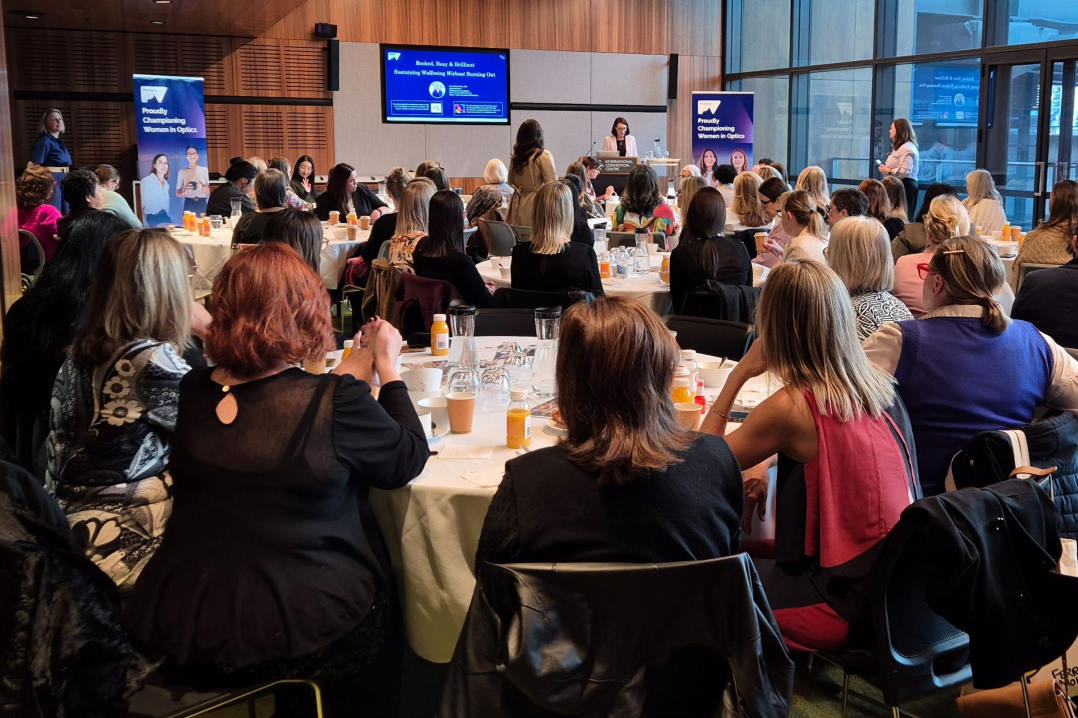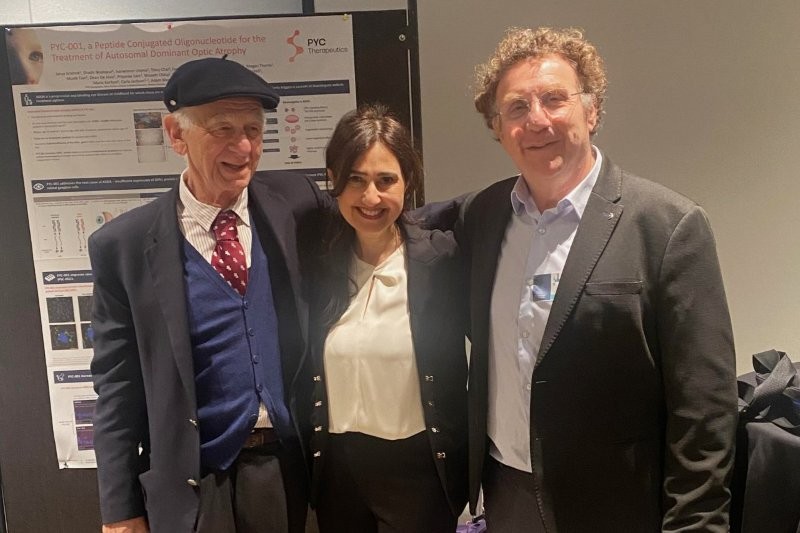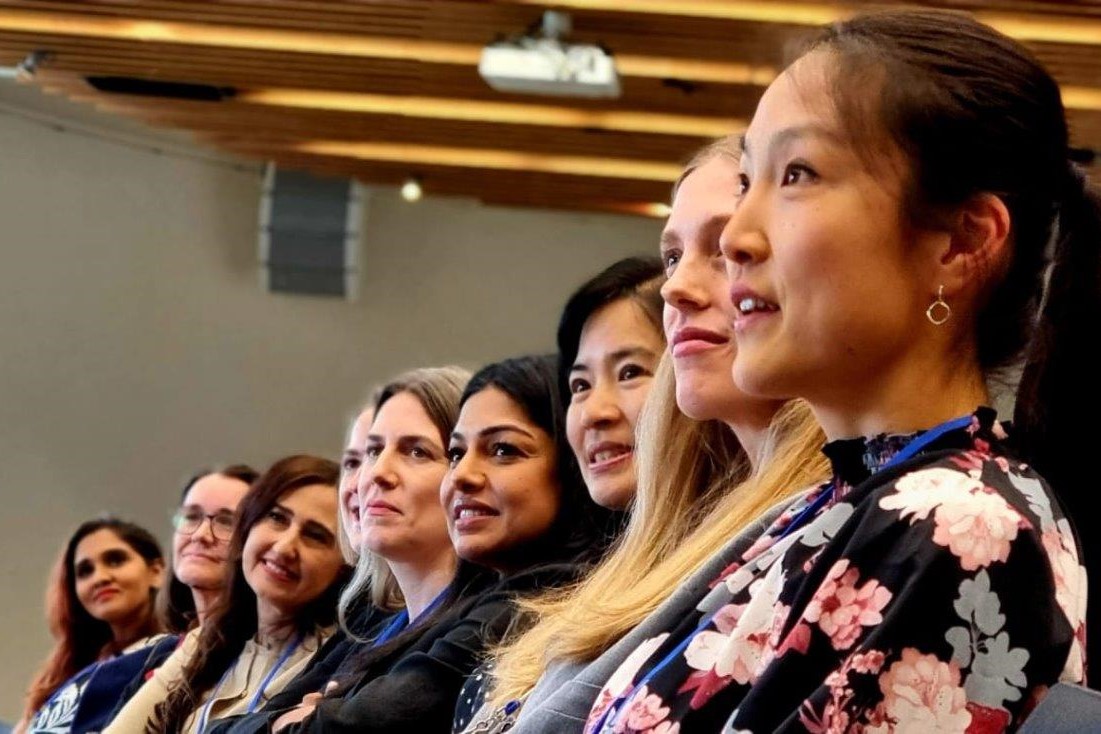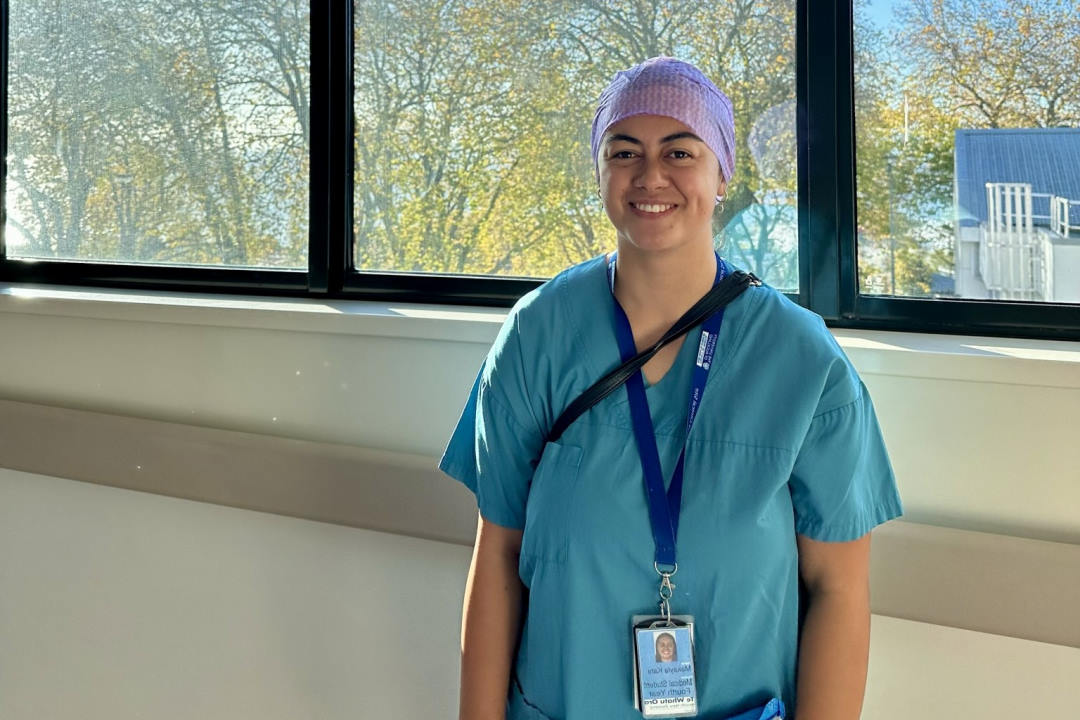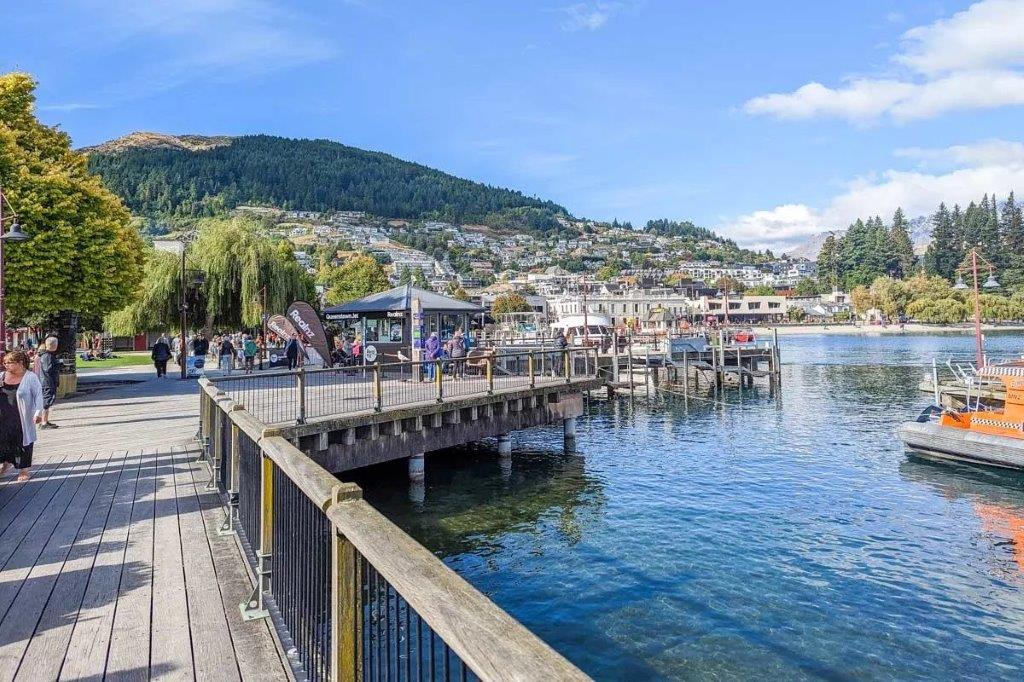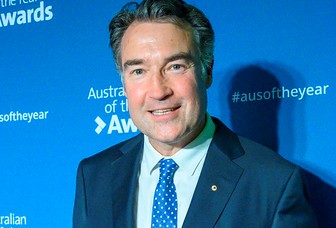Women in vision: breaking the bias
The drive up to the inaugural Women in Vision Aotearoa conference felt like a test of what was to come. I’m a woman; I can drive my totally inappropriate little car several kilometres on extremely narrow, windy metal roads without worrying whether I’m lost or what on earth I’ll do if another car comes at me, suddenly, from around that next, uphill, 90⁰ bend. Can’t I?
Fortunately, I didn’t have to face that conundrum, but I still breathed a huge sigh of relief when a final turn revealed the beautiful grounds of the Woodhouse Mountain Lodge retreat near Warkworth, 60km north of Auckland.
From the start, the feeling of this conference was like no other – it was more girls’ weekend away than a CPD ophthalmology conference! There was a definite air of excitement and apprehension of what was to come as the all-female delegates perused the programme over coffee and muffins on that first morning. This preceded the somewhat terrifying Whakawhanaungatanga session to build relationships and share a little about yourself, coupled with practical talks on insurance and employment rights and some more mysterious sessions entitled ‘Agony aunt’, ‘Relax with Vicky’ and ‘Finding your inner leader’!
Themed ‘Break the bias’ and focusing on breaking down barriers and fostering collegiality, the conference was the brainchild and self-admitted passion of Hawke’s Bay consultant ophthalmologist Dr Liz Insull. In her introductory letter in the delegates’ handbook, she wrote she wanted to do something to support and empower female ophthalmology trainees. As the conference progressed, it became clear this was to ensure they didn’t suffer the same issues most (actually, it seemed like all) of the attendant senior female consultant delegates faced during their training and early careers.
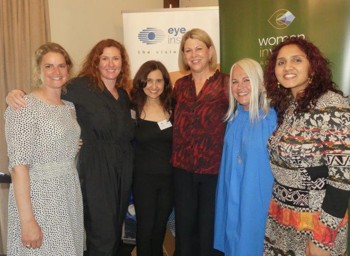
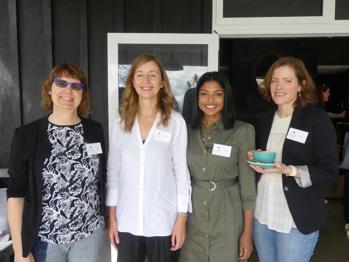
(Left) MC Vicky Murphy and organisers Dr Liz Insull, Prof Helen Danesh-Meyer and (far right) Dr Pragnya Jagadish, with presenters Jo Sinclair, senior medical officer wellbeing lead at Counties Manukau (centre), and Margi Luzanycia from the Alchemist Collective; and (right) attendees Drs Sarah Welch, Penny McAllum, Narme Deva and Sarah Hull
Key to the conference’s evolution, and the first colleague Dr Insull approached to help, was one of New Zealand’s best known and most accomplished international ophthalmology speakers, Professor Helen Danesh-Meyer. A passionate believer in empowering women at all stages of their ophthalmology careers, Prof Danesh-Meyer is also chair of the Royal Australia and New Zealand College of Ophthalmologists (RANZCO) Women in Ophthalmology (WIO) group and was instrumental in developing the RANZCO-WIO ‘Tick’, awarded to meetings which have ensured at least 35% of their speakers, session chairs and panellists are women.
Dress to progress?
Opening the conference, Prof Danesh-Meyer stressed that although things are a lot better today than when she started out (and unfathomably better than when her mother did), implicit or unconscious bias still abounds. This was evidenced by her daughter’s recent move into medical training, with her daughter deciding to wear “her grandmother’s clothes” (as Prof Danesh-Meyer put it) for interviews, so she wouldn’t be marked down for looking ‘too pretty’. This ‘choice’ was a consequence of two earlier interviews: in the first, wearing ‘her grandmother’s clothes’, she scored top marks and was encouraged to become a doctor; in the second, she wore ‘normal’ smart clothes (at the urging of her mum), which led to her being marked down and an interviewer suggesting she should consider studying nutrition instead!
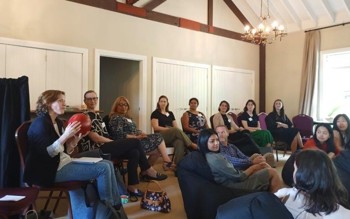
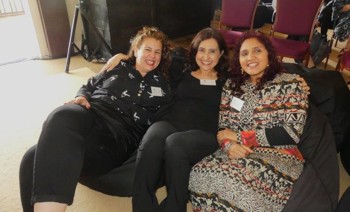
(Left) Dr Sarah Hull sharing some of her experiences with the aid of the rugby-ball microphone; and (right) Dr Shira Sheen, Prof Helen Danesh-Meyer and Dr Pragnya Jagadish
Prof Danesh-Meyer also shared some fascinating documented examples of implicit bias, including the New York Philharmonic Orchestra’s overnight transformation from an all-male orchestra to 50% women in the ’80s when blind auditions were introduced; or research showing senior female judges in the US and Australia are interrupted more than twice as often as their male counterparts.
Closer to home, recent research by Prof Danesh-Meyer and two of her Kiwi mentees, Drs Hannah Gill and Rachael Niederer, revealed 40% of female trainees reported receiving less respect because of their gender from medical team members (compared with 0% of men), and 80% said having children had slowed their career progression (vs 30% of men). Perhaps even more concerning was another WIO-initiated research project, involving the same team, which found that by the fourth year of training, the mean total surgical volume for females was 21.1% lower than males; while for cataract surgery, it was an even more startling 41.7% lower. This revelation prompted a myriad of audience anecdotes, with several adding that at the time, they blamed themselves for not being picked for hands-on surgical work, only to discover later it was far more likely to have been unconscious (or conscious?) bias that forced them to the sidelines!
Further areas addressed by Prof Danesh-Meyer and her co-speakers, including the conference’s other organisers Drs Pragnya Jagadish and Ruhella Hossain, were the differences that still abound in child- and home-care expectations (women are still responsible for 67% of childcare compared with 8% of men); employment conditions and salaries (why don’t women ask for more, like their male counterparts do?); and expectations from ophthalmology team members (are male trainees or new consultants ever told that they should bake for their ophthalmic nursing team if they want them on their side?!).
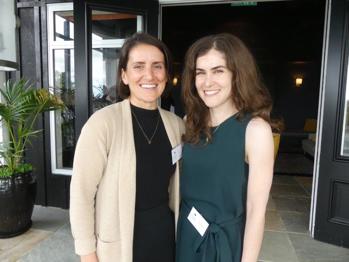
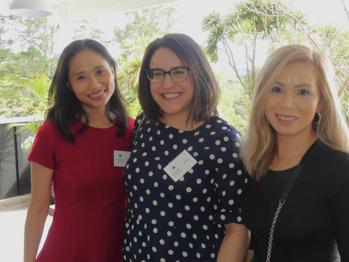
(Left) Drs Erica Doucet and Charlotte Laurent; and (right) Drs Yi Wei Goh and Jessica Michaels with Glaukos’ Malaty Kittikhoun
Parenthood and prejudice
In one of the panel discussions, delegates shared some harrowing tales of balancing the pressures of new parenthood with training requirements. This was hindered by some very 19th century responses to getting pregnant at the ‘wrong’ time, according to some primarily (but not exclusively) male senior consultants. Turning the tide on implicit bias starts with yourself, said Prof Danesh-Meyer, as we’ve all been brought up in a system that is still imbued with prejudice. For example, how many of us have judged a colleague or someone in the street purely on their looks and their gender before talking to them?
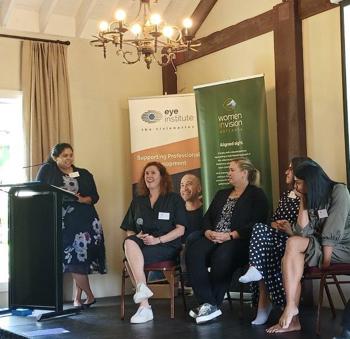
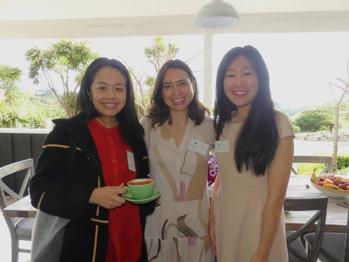
(Left) Panellists Drs Ruhella Hossain, Liz Insull, Verona Botha, Jessica Michaels and Narme Deva; and (right) Drs Sunny Li, Hannah Gill and Hannah Ng
One thing that does seem to be changing, however, is attitudes to part-time training when attempting to balance work and parenthood, following some incredible success stories from some trailblazing, successful female consultants. Several who had to navigate these tricky waters shared their stories and actively encouraged younger delegates to seek them out if they weren’t given the support they should be receiving. Another delegate pointed out that since a few male trainees had also now successfully applied to train part-time (nearly always for family commitments), it was now becoming a more ‘normal’ thing to do rather than just ‘a female thing’!
A couple of practical sessions from union delegates then outlined trainees’ rights under the law if they do fall or wish to become pregnant, though they admitted a lot more still needed to be done to bring Aotearoa up to speed with other Western jurisdictions. There was also a great deal of helpful information about recognising and dealing with burnout, the importance of putting yourself first and how to actively change your attitude to gain more power and balance in your life. The most interesting sessions, however, were the ones that required audience participation. No one refused the microphone, and the honesty and openness required, though challenging, also felt liberating once you’d spoken.
Just like a girls’ weekend away, I left feeling refreshed, empowered and supported, and a whole lot better than when I’d arrived, which was really what it was all about!

Drs Rachael Niederer, Lize Angelo, Haya Al-Ani, Joevy Lim and Bia Kim
Supporting Women in Vision Aotearoa

The organisers of the inaugural Women in Vision Aotearoa meeting would like to thank the following sponsors for their support:
- Eye Institute (platinum)
- Auckland Eye (gold)
- Financial Independence (silver)
- Alcon
- Glaukos
- Johnson & Johnson Vision
- New Zealand Society of Cosmetic Medicine
- Ophthalmic Instrument Company
- RANZCO NZ Branch
- Southern Eye Specialists
- Titan Optical
Thanks also to:
- Rianna Munro for designing the Women in Vision logo - www.riannas.studio/; and
- Cushla Bower for the beautiful speakers’ gifts – www.cushlaherbalist.com

Dr Liz Insull, NZ Optics' Lesley Springall (author), MC Vicky Murphy and Dr Shira Sheen at the inaugural Women in Vision Aotearoa conference










